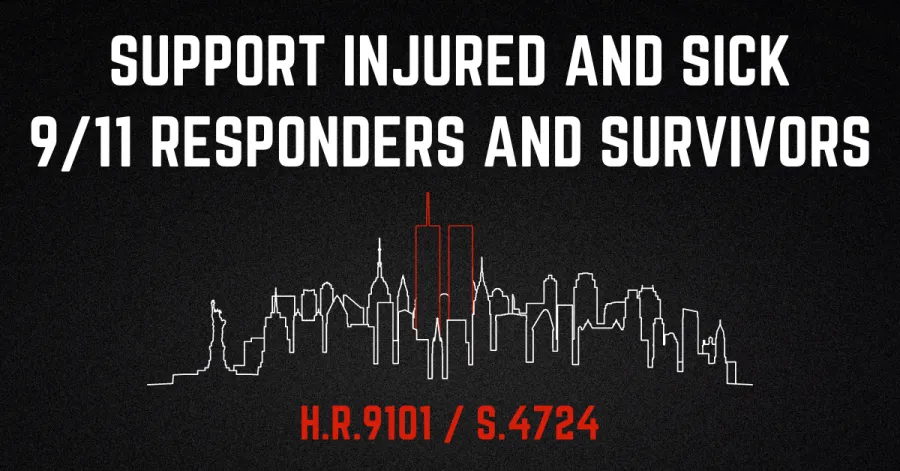9/11 RESPONDER AND SURVIVORS

More than two decades later, our nation still bears the scars of the 9/11 terrorist attacks. Families still mourn the loved ones they lost that day and, in the years that followed, from illness or injury. In the labor movement, we continue to grieve the more than 600 members of our union family killed in the attacks.
For too many, the process of healing and rebuilding is still ongoing. In the wake of the attacks on Sept. 11, 2001, tens of thousands of emergency workers, construction workers and others rushed to the World Trade Center, the Pentagon and the crash site in Shanksville, Pennsylvania, to assist in rescue and recovery operations.
Those near ground zero were exposed to a toxic mix of dust and fumes from the collapse of the twin towers and the fires that lingered. Twenty-three years later, many of these individuals are suffering from serious cancers, respiratory diseases and other serious health problems.
We made a promise to provide medical care and take care of those who became ill because of that tragic day in American history. Unions led the fight to create the World Trade Center (WTC) Health Program, and now we need to act again.
The WTC Health Program is once again facing a budget shortfall that could start to impact care and lead to budget cuts in 2028. The shortfall would occur just as we expect more people to need the program’s care due to an increasing number of 9/11 cancers.
Survivors of 9/11 live in every single state and in 434 of 435 U.S. congressional districts. Every member of Congress should support legislation to fully fund this program.
Today we also honor the untold number of workers who helped respond to the tragedy: firefighters and police officers, nurses and health care workers, airport workers and air traffic controllers, teachers, city and public employees, transportation workers, construction workers, communications workers, and more. The labor movement is built on the power of solidarity, and it has taken all of us to rebuild—in every workplace, family and community touched by the tragic events of that day 23 years ago.
We cannot leave behind anyone still suffering today.
In Solidarity,
Team AFL-CIO
